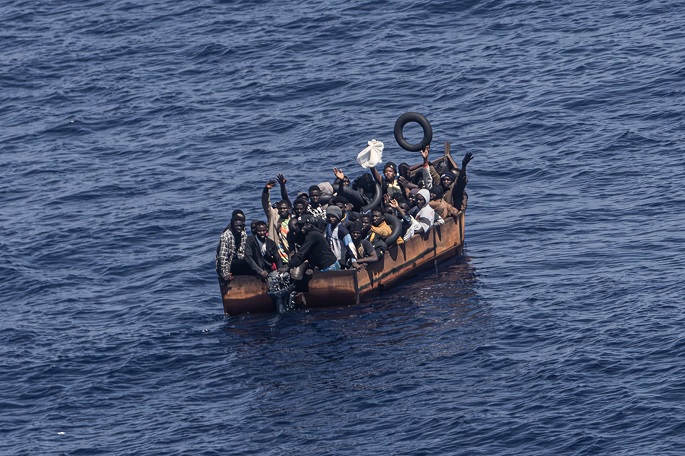EU agrees to tighten asylum system in sweeping migration reform
Published : 21 Dec 2023, 00:44
Updated : 21 Dec 2023, 02:15
EU states and the EU Parliament have agreed to significantly stricter asylum procedures in a major reform of the European asylum system.
The painstakingly negotiated compromise announced on Wednesday provides for numerous additions and tightening of the existing rules with the aim of reducing irregular migration to the European Union.
"It’s been a long road to get here. But we made it. Europe is finally delivering on migration," said European Commission Vice-President Margaritis Schinas on X, describing the deal as a "breakthrough."
European Parliament President Roberta Metsola said Wednesday "will go down in history. The day the EU reached a landmark agreement on a new set of rules to manage migration and asylum."
The reform has been the subject of intensive work since 2015, when record numbers of migrants arrived in the EU.
While countries with right-wing governments, like Hungary, were strongly in favour of tightening existing rules, aid organizations and Europe's political left expressed concerns about the degradation of human rights.
The reform "will ensure that there is an effective European response to this European challenge," said European Commission President Ursula von der Leyen.
"It means that Europeans will decide who comes to the EU and who can stay, not the smugglers," she added.
The reform for example foresees a much stricter handling of people from countries that are considered relatively safe. Until a legal decision is made on their asylum application, asylum seekers are to be housed in reception centres under strict rules.
While the European People's Party, which includes the conservative political groups in the European Parliament, hailed the agreement as a "historic deal," left-leaning EU lawmakers were quick to criticize.
"The negotiators agreed to undermine the right to seek asylum," said German EU lawmaker Damian Boeselager, who is a member of the European Greens.
"This new system will make sure we have prison camps at our borders and should have never been accepted," Boeselager said.
Under the new system, the distribution of people seeking protection among the bloc's 27 member states is be reorganized under a new set of rules dubbed a solidarity mechanism.
If a country does not want to take in refugees, they are required to provide support in a different form, for example through financial compensation.
The agreement still has to be confirmed by the plenary of the European Parliament and EU member states, which is usually considered a formality.


